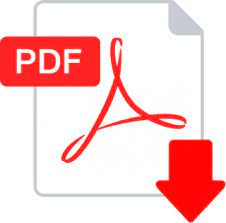Solusi Untuk Mengatasi Kesulitan Pembelajaran Bahasa Jepang Secara Daring di SMAN 2 Temanggung
DOI:
https://doi.org/10.34010/js.v12i1.6527Abstract
This study was conducted to describe the difficulties of SMAN 2 Temanggung students in facing online Japanese learning during the Covid-19 pandemic and then find out the causes so that researchers can provide solutions.
This study uses a quantitative descriptive method. The research sample was the entire population, namely 81 students from class XII IPA and XII IPS of SMA Negeri 2 Temanggung who participated in online Japanese language learning. Data was obtained through a questionnaire containing 4 indicators with 24 questions. The scale used is a Likert scale with an interval of 1-4. The validity of the research instrument was carried out with content validity and the reliability of the instrument was calculated using the Cronbach Alpha formula through the SPSS application. The data analysis technique was carried out using the percentage scale guideline model and the interpretation classification of the number of percentage answers according to Arikunto.
Based on the results of the study, the average percentage was 56.21% which showed that more than half of XII IPA and XII IPS students had difficulty learning Japanese online. These difficulties are technical difficulties, difficulties when learning Japanese online takes place, difficulties in doing assignments and difficulties from the environment.
Downloads
Published
Issue
Section
License
- Authors retain copyright and grant the journal right of first publication with the work simultaneously licensed under a Creative Commons Attribution License that allows others to share the work with an acknowledgement of the work's authorship and initial publication in this journal.
- Authors are able to enter into separate, additional contractual arrangements for the non-exclusive distribution of the journal's published version of the work (e.g., post it to an institutional repository or publish it in a book), with an acknowledgement of its initial publication in this journal.
- Authors are permitted and encouraged to post their work online (e.g., in institutional repositories or on their website) prior to and during the submission process, as it can lead to productive exchanges, as well as earlier and greater citation of published work (See The Effect of Open Access)










.jpg)

